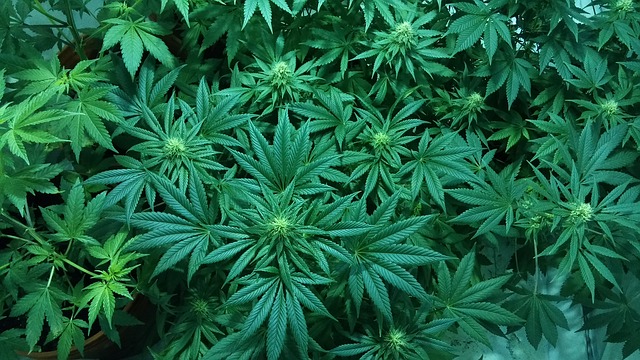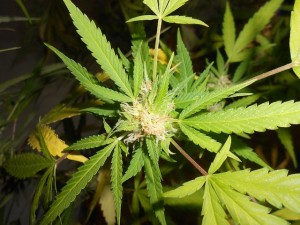Sharon Johnson calls herself an addict, even though she’s been clean for three years now.She started by smoking pot befire moving on to crack cocaine. Her daughter tried heroin and Johnson said lamentably, “I believe I’m going to put her out of the gutter someday.”
Johnson has seen the ravages of drug abuse firsthand as reflected in a National Associated Press-NORC Center for Public Affairs Research Poll. Whether it’s alcohol or illegal drugs such as heroin and cocaine, a majority of Americans say it is a problems and that more needs to be done to address it.
Johnson. 56, of Lynn, Massachusetts, said she doesn’t believe any drug should be legalized – including legal marijuana – and believes more needs o be done to crack down on dealers. She goes to Narcotics Anonymous meetings every Thursday and sees too many of her companions there relapsing and dying from drug use. Still, she considers treatment the best option for users rather than prosecution.
“To lock someone up for using, it’s not going to solve anything. “To lock someone up for using, it’s not going to solve anything. They’re going to rebel,” Johnson, a poll respondent, told the AP in a follow-up interview. “For dealers, in my eyes, they should be locked up.”
The poll found that most Americans (62%) said that at least one type of substance use was a serous problem in their communities. They included alcohol, marijuana, heroin, cocaine, meth and prescription pills. Some 43 percent said that have a relative or close friend with substance abuse issues. 70% of Americans believe not enough is being done to find better addiction treatment or to make treatment programs more accessible in their communities.
Like Johnson, most prioritized punishment for drug dealers instead of cracking down on users.
It is usually a long road for those trying to get clean. You could go from couch to couch because of not paying rent. There are even those who became estranged from family members.
Johnson spent six months in treatment as part of Project COPE, which is an outpatient substance abuse treatment program. She’s now on disability and hopes to complete her education. Lynn, a city of 90,000 north of Boston, has experiences one of the state’s highest rates of death from heroin.
This story captures much of what the AP-NORC survey described: A feeling that drugs are a pervasive problem, with many seeing friends or relatives ravaged by drugs and believing that treatment options need to be improved for addicts while punishment needs to be fierce for dealers.
While 61% of those said they support legalizing marijuana, most said they want it limited to medical treatment or want to impose restrictions on amounts that can be purchased.
Retired criminal defense lawyer, Warren Lawler Chansky believes that as long as alcohol is legal, so should marijuana for recreational and medicinal uses.
“In all these years of practicing, I’ve been awful crimes, tragedies. But very few associated with marijuana,” said Chansky, 57, of Port St. Lucie, Florida.
He does not personally smoke but he had a family member who used marijuana to keep up her appetite while she was battling cancer. “She would have died had she not been able to eat”, Chansky said.
The AP-NORC Poll of 1,042 adults was conducted Feb. 11-14 using a sample drawn from NORC’s probability-based AmeriSpeak panel, which is designed to be representative of the U.S. population. The margin of sampling error for all respondents is plus or minus 3-9 percentage points.
Respondents were first selected randomly using address-based sampling methods, and later interviewed online or by phone.
Key finding in the AP-NORC Poll
Marijuana
61% of Americans say marijuana should be legalized. Among that group, 43%say legalization should come only with restrictions on the amount of pot that can be purchased, and 24% say it should require a doctor’s prescription. the other 33% don’t believe there should be any restrictions.
Legalizing other drugs
Americans overwhelmingly oppose legalizing other drugs such as cocaine or heroin, with just 7% favoring legalization.
Is it a big problem?
About a third of Americans consider heroin use, alcohol, prescription painkillers and other drugs such as cocaine and meth to be very or extremely serious problems in their communities. Only about a quarter believe marijuana use is a very or extremely serious problem.
What poses the most risk?
About 52% believe that prescription pain relievers and heroin are about equally risky to use.
What roles do doctors and dentists play?
Most Americans believe doctors’ and dentists’ prescribing practice play some role – whether big or small – in contributing to a dependence on prescription pain relievers and drug overdoses.
Narcan
Narcan, or Naloxone, can prevent people from dying if they are overdosing on a prescription painkiller or heroin. Some states have made the drug available to adults without a prescription, while other states restrict its sale because they believe it will encourage the use of illegak drugs.
57%, more than half of those surveyed, believe access to the drug should only be allowed with a prescription.



